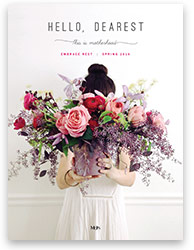Contact Us
Are your particular restful endeavors truly restorative or possibly life-draining?
When we repeat the same behaviors over and over, our brains strengthen the neural pathways associated with those activities. In time they become the easiest go-to, slickest routes of least-resistance – particularly in times of stress, pain or exhaustion. TV binges, snacking, mindless games and getting lost in social media provide little hits of delicious dopamine. They’re easily accessible and hassle-free, therefore we assume they are our preferred modes of resting. But they may in fact be life-draining.
These default activities numb us and serve as avoidance techniques that can keep us from facing reality. But reality is our friend, and sitting in it is how we grow. If the avoidant numbing becomes compulsive and interferes with normal daily responsibilities, it can take on the flavor of an addiction. To put your favorite activities to the test, ask yourself a couple standard addiction assessment questions.
- “What happens and what do you feel when you try to quit your habit?” Your degree of discomfort lets you know how physically and psychologically bound you are to the activity.
- A positive question: “What else can you dream of doing with the time, energy or expense you pour into your habit?”
Consider your “restful” activities. Rank them in order from the most compulsive, default, bottom-of-the-barrel like the ones I listed above (no shame y’all, I have them too), to what you would consider a rejuvenating, life-giving, great use of time – like creative expressions, researching causes, reading, connecting, being musical or educating yourself. Make a plan to challenge your most out-of-control behaviors by partnering with a friend and supporting each other to abstain from them or limit them for a season. Process together what you notice and learn together from your brave challenge. Brutal honesty is the only way this works.
The paradox of resting is this: in order to restore life to our withered souls and broken bodies, we have to pour out even more energy to do something that truly nourishes us. Just when you have nothing left, you have to give a little more to feel deeply restored. It is our unwillingness or inability to expend these extra ounces that keeps us stuck. There, I said it. I don’t mean to sound confrontational – I really wish it was different – but I don’t make up the rules and every wise woman knows this truth in her gut – even if she’s currently stuck.
Choosing to avoid feelings through compulsive actions that mimic rest is the opposite of restoration. They provide only a moment of reprieve from our pain in life but once we resurface, all our problems are the same (or worse). Addiction can look like avoidance. And avoidance breeds stuckness, immaturity and even more pain. If we can bravely choose against our bottom-of-the-barrel rest strategies and invest just a little more of our energy back into ourselves, we will feel an almost immediate difference. This isn’t one of those practices that you have to perform over and over to feel the benefit. It’s highly likely you will feel more grounded, richer and stronger immediately after spending your time engaged in a more satisfying and decadent form of rest.
If this all feels very overwhelming to you, if you are in the strung-out, near-dead life stage, I want to speak some grace over you. This challenge may not be for you right at this moment. Treats and nightly screens may be the best version of kindness you can give yourself and that is okay, dear mama. I want you to tuck these ideas away with self-compassion and good humored hope for a little more breathing space in your future.
To restore means to set things right: within yourself, in others and in the world around you. Creating more beauty, gaining more understanding, improving physical health, investing in your community, fueling a passion, enjoying your gifts and talents, or drawing inspiration from the talents of others. Dream of not wasting your precious soul on (too much) media consumption – but dream of participating, fostering abundance and co-creating the world you only inhabit for a brief while.
Kelley Gray has been a private practice psychotherapist in the Denver area for 14 years. She is passionate about promoting growth, healing and making messes with her daughters.

This article originally appeared in the Spring 2016 issue of Hello, Dearest. If you didn’t get a copy and would like your own, you can subscribe to get Hello, Dearest in your mailbox every season. If you subscribe, forward your receipt to magazines@mops.org and we’ll shoot a copy of the current issue in the mail to you for free … just because we like you.
